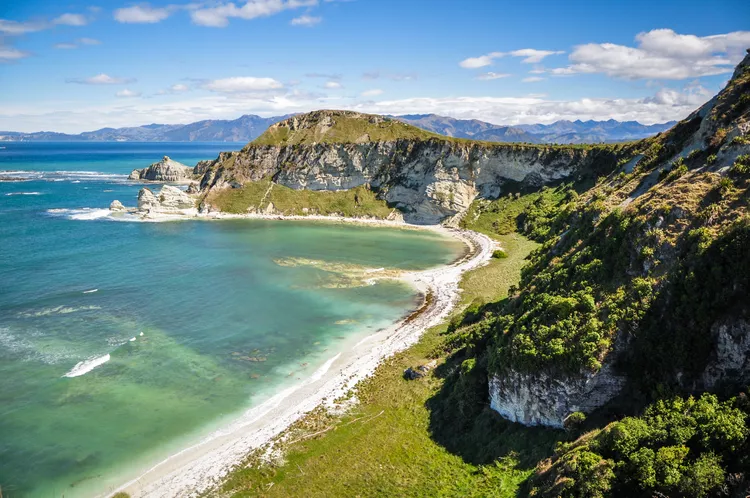1. Overview of Costs in New Zealand
United States residents traveling to New Zealand on vacation typically find a mix of higher prices for some common consumer goods, while others may be lower. In general, expect to pay higher prices in smaller towns and rural areas, and lower prices in major cities such as Auckland, Christchurch, Wellington, and Hamilton. For certain items, the North Island tends to offer lower prices compared to the South Island.
A breakdown of common essentials can assist travelers in planning a budget for their trip to New Zealand, comparing it to their home country. Similar to most Western economies, New Zealand enjoys low inflation and stable prices. However, costs can vary significantly throughout the country.
Current prices listed reflect New Zealand dollars; for conversions to your home currency, utilize the XE currency converter.
2. Grocery Costs
Groceries typically cost less in supermarkets compared to small convenience stores, known as dairies or superettes in New Zealand. While grocery prices in New Zealand may be higher than in the United States, supermarkets often run weekly specials and provide club card discounts. Therefore, savvy shopping can help save money.
Generally, imported items tend to be more expensive, so focusing on local brands and fresh produce is a more budget-friendly approach. For instance, in Auckland, a carton of 12 eggs costs about $6, a liter of milk (roughly a quart) is around $2.50, and over 2 pounds of apples (1 kilogram) is priced at approximately $3.86. Local cheese and boneless, skinless chicken breasts can run about $8 per pound (500 grams), while a loaf of sandwich bread ranges from $1.50 to $10 depending on the type, particularly more artisan varieties. A bottle of wine from a supermarket typically costs between $8 and $30.
3. Dining Out
New Zealand boasts a vast array of restaurants, ranging from budget-friendly eateries to world-class fine dining establishments. Ethnic cuisine is plentiful, with Thai, Indian, Chinese, and Japanese being quite popular.
Prices vary widely but, on average, a three-course meal for two at a mid-range restaurant will cost between $90 and $115. Fast-food options, like a Big Mac, are priced at about $7, with combo meals reaching up to $11.50. Ethnic restaurants often present the best value and commonly allow patrons to bring their own beverages.
In a pub, a domestic draft beer can cost about $8, whereas a flat white, a popular coffee choice among New Zealanders, is roughly $4.
4. Fuel Prices
Most cars in New Zealand operate on two grades of petrol (gas). The 91 octane grade is around $2.30 per liter (0.26 gallons), while the 95 octane is slightly more expensive, priced at $2.20 per liter, despite generally providing better performance.
Diesel fuel may offer lower costs at the pump, priced at approximately $1.65 per liter; however, a Road User Tax—varying according to vehicle weight—can increase the overall price, bringing it closer to that of 91 petrol. This tax must be paid in advance at any Post Shop and displayed on the vehicle’s windshield.
Moreover, many supermarkets provide fuel vouchers for grocery purchases over a specific amount. By purchasing in bulk, one can acquire a voucher that saves between 3 and 20 cents per liter, a valuable tip for travelers.
5. Accommodation Options
Accommodations in New Zealand vary significantly, from campsites, backpacker hostels, and budget hotels to luxury resorts and private lodges. Prices fluctuate with the seasons, with summer (from December to February) generally being the most expensive time for lodging. Furthermore, location plays a crucial role in pricing; accommodations in popular resort destinations, such as Queenstown, typically cost more than the national average.
The following outlines the average price range for a double/twin room (two people) during high season, per night:
- Backpackers—dorm bed (single): $18–$25
- Backpackers—private room (double): $45–$65
- Motel unit—double: $90–$125
- Main city hotel (3-star, standard room): $135–$170
- Main city hotel (5-star, standard room): $150–$450
6. Public Transportation
Due to New Zealand’s challenging geography and relatively small population, the rail network is not highly developed; however, it can be an enjoyable option within Auckland and to other parts of the North Island. Additionally, several scenic tourist railway lines offer beautiful views and memorable experiences.
Buses and coaches provide a more extensive and economical travel option between towns and cities. Local fares generally range from $2 to $10 per trip. Taxis within city limits are priced at roughly $29 for a 5-mile journey, but prices can vary considerably across different regions.





